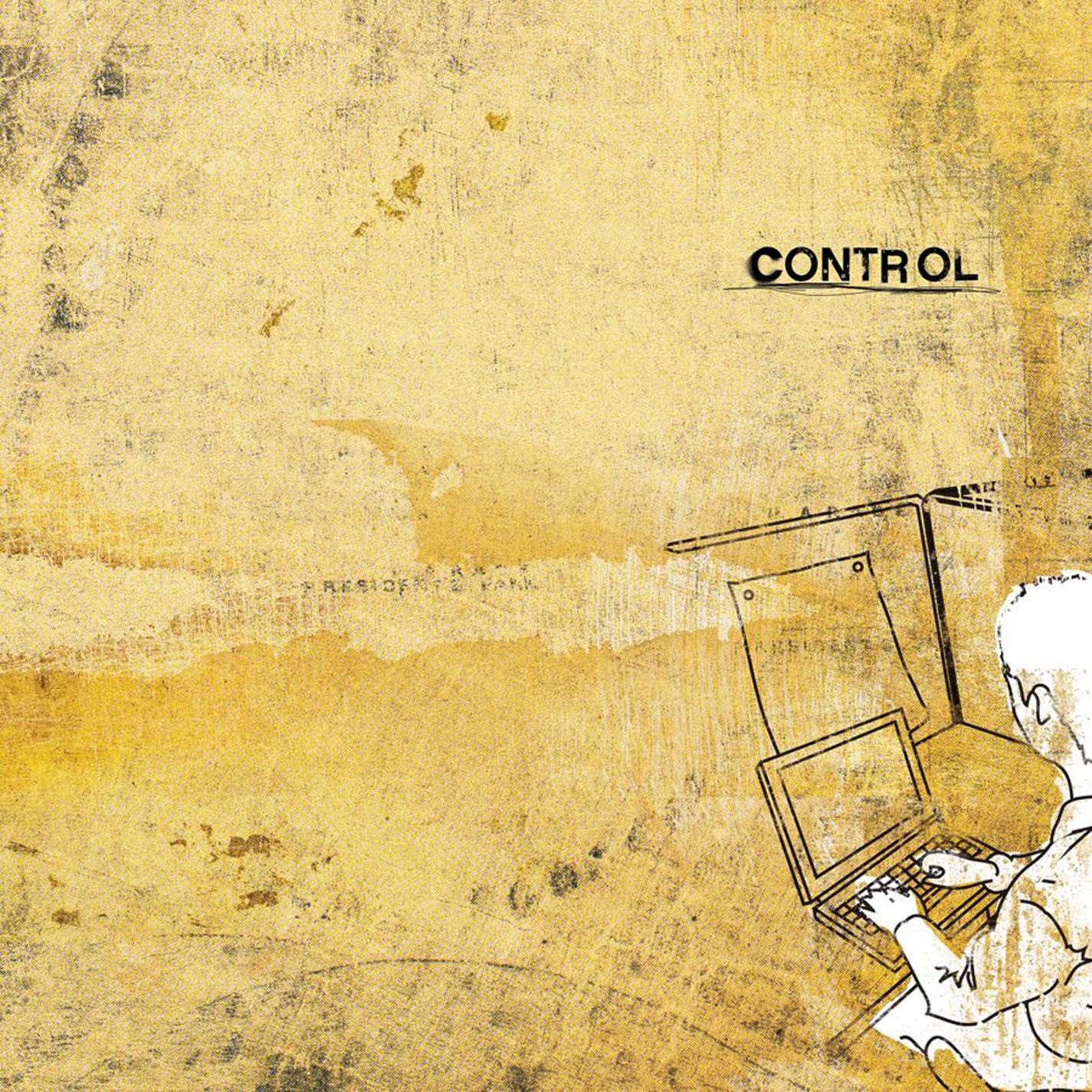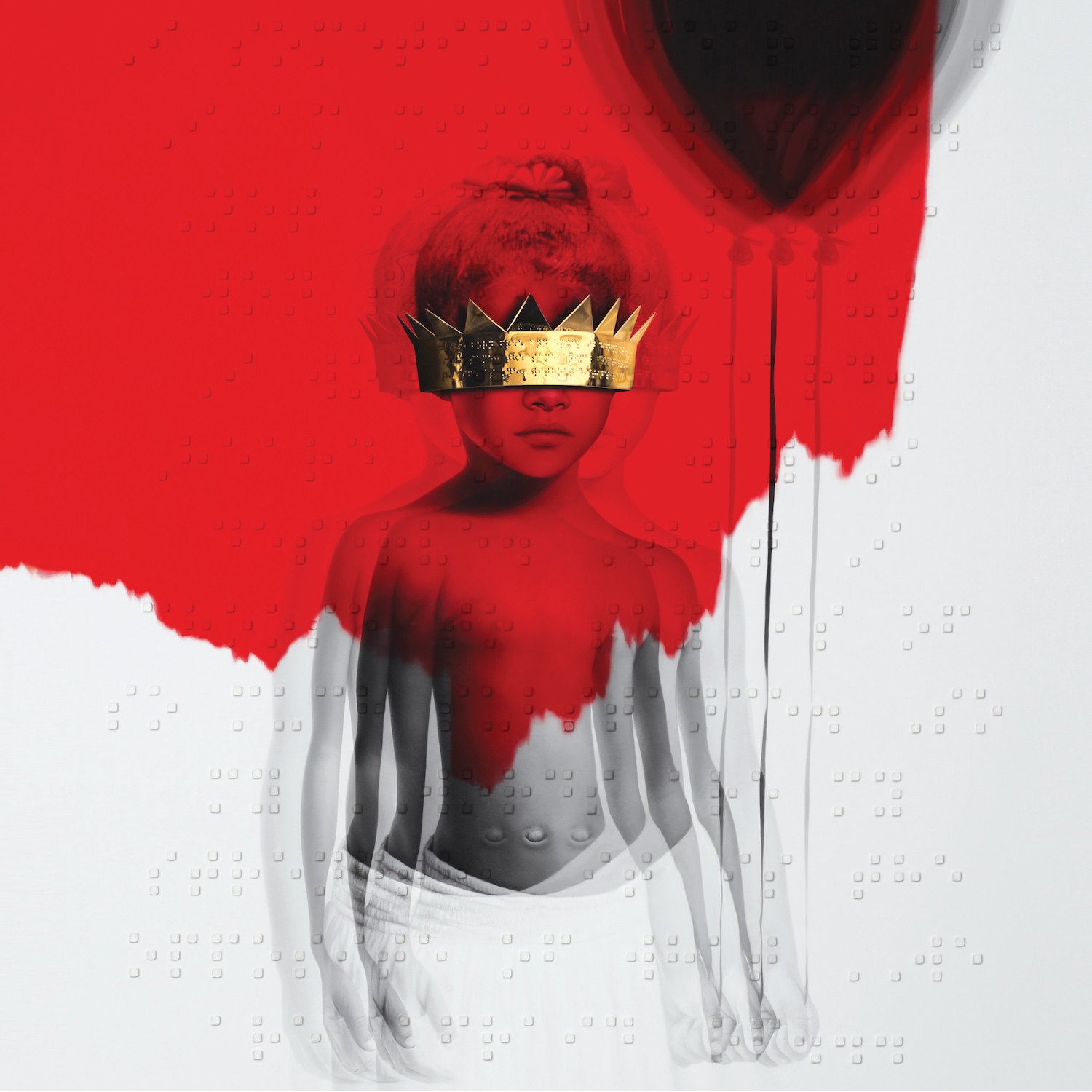- Jade Tree
- 2002
On Control's 10th anniversary in 2012, David Bazan set out on a national tour to play the album in full; the tour tagline read "David Bazan Band Plays Pedro The Lion's Control." Pedro The Lion had officially broken up six years before, and since then Bazan had released music exclusively under his own name. Although the accompanying shift in Bazan's sound could more rightly be deemed a "refinement" than a "departure," the break with the band name was firm and intentional. Following the release of 2004's Achilles Heel, Bazan dissolved the band and abandoned the name Pedro The Lion amidst a personal loss of religious faith. His first solo album, Curse Your Branches, detailed this journey out of the fold and into a quest for peace absent from Christianity's rigid precepts. In 2012, although he was consenting to play the songs, it was as himself, as David Bazan, not as the band that wrote these songs from a much different place.
Today, as I type this, Bazan is once again on a national tour -- the tours of David Bazan, as it says in the scriptures, are "like the sand of the sea, too numerous to be counted." He's not playing Control in full this time, although the album turns 20 years old this Saturday. However, the tour poster now reads Pedro The Lion. The journey back to Pedro was a long and winding one. After over a decade away, why come back to that band name? Even before Bazan took to recording and performing under his own name, the albums released as Pedro The Lion were, for all intents and purposes, solo efforts. Bazan wrote and recorded between 90-100% of everything himself. His domineering creative process became a source of serious tension in the band.
So it might seem little more than cynical marketing to return to a band name 12 years dormant, one tied to his career as a Christian musician, and one that doesn't connote any specific lineup of performers beyond Bazan himself. In 2017, Bazan told Stereogum that, just from a practical standpoint, finances frankly did impact his return to the name. He makes three times as much playing shows as Pedro: "That's just what the reality is." He was long aware of the financial disparity, but still resisted and performed under his own name, needing space from what that band connoted both to the audience and to himself. However, on the 20th anniversary of Control, Bazan is once again the frontman of Pedro The Lion, and part of the answer to why he came back, I believe, lies somewhere in the enduring power of this album.
Pedro The Lion formed in 1995 as a vehicle for the songwriting talents of David Bazan, the perpetually bearded and black-T-shirt-clad son of a pastor with a resonant croon and a novelist's eye for detail. Pedro The Lion songs are often character studies, heartrending ballads with a touch of bile that follow the foolhardy and proud through the inevitable consequences of their actions. Like the characters that populate Flannery O'Connor's stories, they would be good people if there had been somebody there to shoot them every minute of their lives.
The band was birthed out of a Pacific Northwest music scene equally impacted by Built To Spill's noodly guitar wizardry and the Christian rock monolith Tooth & Nail Records. It's still woefully under-documented, but Seattle in the '90s and early 2000s had an exciting, diverse music scene populated by a shocking number of familiar faces from the indie rock world. Growing up in Seattle, Bazan split his time between churches-turned-venues, where he saw a bunch of Jeremy Enigk shows, and various short-lived all-ages venues, where he marveled at the mathy gymnastics of local emocore act Roadside Monument. Bazan played drums for his high school buddy Damien Jurado's band the Guilty (which later changed its name to Coolidge). Seasick Steve (government name Steven Gene Wold) was a spiritual mentor and occasional slide guitar player for Modest Mouse who recorded Whole, Pedro The Lion's debut EP. A year after Whole was released, Tooth & Nail publicist James Morelos founded the iconic indie label Made In Mexico for the purpose of releasing the first proper Pedro full length.
The roster timeline for Pedro looks like that of a hardcore band. In 2000, Ben Gibbard had a stint playing bass. Two different members of Fleet Foxes were in Pedro before the formation of Fleet Foxes. I think one of the guys from the Shins was in there at some point. This rotating cast of indie rock notables was almost exclusively for the touring band, however. Part of the reason for this rotating cast was how difficult Bazan could be to work with in those days, but also because they were usually just serving as the live band for tour. Bazan had an intensely specific vision, and he preferred to write and record everything himself. Control is both a broad summary of the album's themes, and a self-deprecating wink at his creative process.
Pedro The Lion never miss on a lead-off track, but Control has their strongest opening statement. "Options" is far and away the most streamed Bazan song. Driven by a simple, hypnotic guitar line, "Options" finds a married couple walking hand in hand on the beach, together physically but isolated within their own thoughts. "I could never divorce you," the narrator begins, "Without a good reason/ And though I may never have to/ It's good to have options." The chorus floats beautifully above the rest of the song, a simple refrain filled simultaneously with love and sorrow and selfishness and fear: "But for now I need you."
On its release, Control was pitched as a concept album about the dissolution of "a hyper-modern marriage gone wrong." It's clunkier in locution than in execution: The concept is there if you squint, but you'd be forgiven for thinking these songs are just an overlapping Venn diagram of infidelity, vanity, and regret. The outline of the plot follows an unfaithful husband down a self-destructive path that leads to his death at the hands of his enraged wife. What keeps the album from sagging under the weight of its themes is the production.
Control is the heaviest Pedro the Lion album, both in tone and sonically. Earlier albums have a signature clean, dry guitar sound, part of Pedro's slowcore-informed restraint. In comparison, Control is much more forceful, driven by distorted guitars and drums that are loud and up front in the mix. Despite the sonic departure, the personnel in the album credits are familiar: Bazan played almost everything himself and did the lion's share of engineering and mixing, assisted by Tooth & Nail stalwart and fellow Seattleite Aaron Sprinkle. A brief but worthwhile aside: You probably don't know Sprinkle's name, but he is of the most surreally prolific producers -- not just in Christian rock, but in all of rock history. Sprinkle has 970 production credits on AllMusic. For comparison: Steve Albini has 872. A mere 18 credits separate Sprinkle from passing George Martin. You know: the guy who recorded the fucking Beatles.
Sprinkle was also one of a very exclusive group of people who were allowed to touch Bazan's songs. Bazan was known, by his own admission, for being a prickly collaborator, and he felt guilty for how he seemed to drive people away. He points to his drinking that ramped up steadily in the final years of Pedro's first iteration, but also his inability to relinquish Control of any part of the writing and recording process. Longtime collaborator and friend T.W. Walsh was Bazan's only real cowriter, and the strain of this process eventually prompted Walsh's departure from the band (they've since reconciled).
Bazan has mentioned many times the lore of acts like the Beatles and the Rolling Stones, bands known for the collaborative creative process, whose members are essential to their identity. He hated that he seemed unable to create like this, that he could never loosen his grip, and dissolving the band was in many ways an attempt to break the torturous cycle of hiring and firing, of feeling uptight and dissatisfied. Bazan told Noisey in 2017, "At the time, Pedro The Lion was the brand name of my dysfunction more than anything else. I needed to get some distance so I could understand what was going wrong and why I couldn't keep a consistent band going."
In an interview with Aquarium Drunkard, Bazan described the conflict he felt between how he thought a good band should function and the only way he seemed able to be able to function in a band: "By the end of [making albums as Pedro The Lion], I was on to something I could be easily convinced was a selfish project. But it was really just my project...It took me until 2017 to say, 'This is OK for me to do this.' I still felt guilty about it, but I needed to push through and say, 'This is what you need to function to in this vocation.'" Control was an album created in this dysfunctional pressure cooker, but it's also one of the strongest pieces of evidence for the power of the process.
Quite simply, Control rocks harder than any other Pedro The Lion album. Prior releases are indebted to Red House Painters and Bedhead, but Control turns the heat up under Pedro's usual simmer until it boils over. On a recent episode of Damian Abraham's podcast Turned Out A Punk, Bazan said that this heaviness was motivated in part by the label, Jade Tree. According to Bazan, "I didn't understand what they wanted from my band…I think in the end it probably influenced me to make more sort of like heavy records. Like I don't know if I would have made Control if I wasn't on that label. They liked It's Hard To Find A Friend, but there would be comments about ‘Oh…they like the fast songs,' you know what I mean."
And Control has fast songs. Dour verses on "Rehearsal" are elevated by a massive, rousing chorus. "Indian Summer" is a soaring indictment of capitalism's failures that ranks among the best songs Bazan has ever written. Even the slow songs rock pretty hard: "Second Best" is a slow burn that culminates in a sludgy riff only a few steps removed from actual hardcore. This is the album where Bazan really comes into his own as a drummer, thumping the toms and punching out fills with new authority. His drumming is the star of "Magazines," a jittery juggernaut of a beat that propels the whole song. "Rapture" and "Penetration" are two of Control's most rousing tracks, one about the illicit joy of infidelity that is poisoned by guilt and regret before the act is even over, and the other about having your livelihood upended by corporate caprice. Both songs are about the folly of greed, of constantly wanting more, and the inherent consequences. One way or another, you're getting fucked.
Not everything has aged well, which Bazan recognizes. Over time, he began replacing some lyrics when playing these songs live. A line about "corporate cum" in "Indian Summer" has been changed to "bubblegum," a stand-in for consumerist culture that he cribbed from Bob Dylan. Descriptions of sex on the album -- of which there are many -- are perplexingly thorough and detailed. On the closer "Rejoice," Bazan intones, "Wouldn't it be so wonderful if everything were meaningless/ But everything is so meaningful/ And most everything turns to shit." It's a nihilistic tag on the album's narrative that feels too on the nose.
But there is a triumphant liberation in the hamfistedness of Control. The problems are so blunt and obvious and evil; why can't the response to them be equally blunt? If the problem is a nail, you might need to use a hammer. The target of Bazan's scorn is distinctly American: the profit margins and pleasure outcomes that come at someone else's expense. Those who can't increase profits will have to clear out their desks. Without some monumental sea change, our children will inherit a worse world, the environment and economy having been strip-mined by a wealthy oligarchy. Other Pedro albums tend to focus on hypocrisy and pride — distinctly personal failings. Control is haunted by a more corporate arrogance, a self-serving kind of evil built into the larger structures that loom over us.
The album is about modernism as much as marriage. The promises of endless, unlimited progress all turned out false. Everything moves in cycles. The same people who rail against their corporate overlords find that their only way out from under them is to become them. You swore you'd never drink the same way your old man did, until you do. Even as the album's plot climaxes on "Rehearsal," the jilted wife headed steely-eyed down the highway with a knife in the glove box, the unfaithful husband's final, fatal crime is predictable banality. "Darling," she says, "you are so unoriginal/ Each move more obvious than the one before it." If I can get away with quoting the Bible just one last time: "As a dog returns to his own vomit, So a fool repeats his folly."
Bazan's criticisms are often leveled at American Christianity, the religious hypocrites who harbor the same vices but disguise it with the language of grace. "Rejoice" and "Rapture" employ their sacred language with scornful irony. The chorus to "Magazine" scans as a general kissoff to airbrushed vanity, but the verses take aim specifically at the holier-than-thou: "And I feel the darkness growing stronger/ As you cram light down my throat/ And how does that work out for you/ In your holy quest to be above reproach?" The contradictions inherent in how Christianty writ large is practiced eventually led Bazan to a personal revelation of a different sort, one that led him to leave the flock.
Which is why the resolution, the big turn of Control, is so startling and affecting. Bazan gives the final word to a member of the clergy. "Priests And Paramedics" is the penultimate song, but the one that fully resolves the events of the story. One of the album's most powerful moments comes when the priest faces his audience assembled around a grave and, in lieu of funeral rites, says, "You're gonna die, we're all gonna die/ Could be 20 years, could be tonight / Lately I have been wondering why/ We go to so much trouble to postpone the unavoidable/ And prolong the pain of being alive." It should be melodramatic but, delivered over one of the album's sparsest arrangements, it feels simple and clear: a bit of stark, weary truth glinting like the edge of a knife. The evil in the world is tireless. It gets so hard to imagine going on.
The weariness of Control is not the conclusion. The album wants to serve as a corrective -- to shine a light into the dark, to depict evil in all its banality, and to humble the self-righteous and proud. Even the album's clumsy moments feel charged with purpose. Bazan's hyper-specific creative process resulted in a personal burnout and ruptured relationships, but he still emerged from all the mess with Control, an album so full of urgency it almost rips apart at the seams.
In a 2018 interview with Gold Flake Paint, Bazan said, "I had a negative view of Pedro for a long time, [but] I was just being too hard on myself. Yes, there's some bullshit there, but there's some cool stuff too. And having that experience really helped me to go into the next chapter as a more whole person. So now I get to bring all of myself, all of those early successes -- personal and creatively -- with me. I think I had put them aside as not being mine somehow not mine to draw upon, not mine to enjoy. So it's definitely the next thing but it's also forced me to reckon with the material as a whole, and I've realied that I really like it, and that I'm really proud of all of that shit I made. Now I get to enjoy who I was then and not just sit in bitter judgement of that person -- and that feels so much more pleasant."
I saw Pedro the Lion on their 2019 tour in support of their comeback album, Phoenix. It's a great album -- if we're ranking Pedro releases, it's in my top two. I think it's the culmination of a lot of what Bazan seemed to be striving for with the band. It is filled with a deep, tender compassion for self and for others that I don't always feel in the early Pedro songs. For me, it makes the new material richer, and more complete. But halfway through the set, Bazan and company broke out "Magazine," and friends: It still kicks ass. I expected it to feel somehow aged -- too angry or unsubtle compared to the new material -- but it didn't. The chorus rang out, still just as damningly relevant as when it was written: "Wouldn't you love to be/ On the cover of a magazine?/ Healthy skin and perfect teeth/ Designed to hide what lies beneath."






